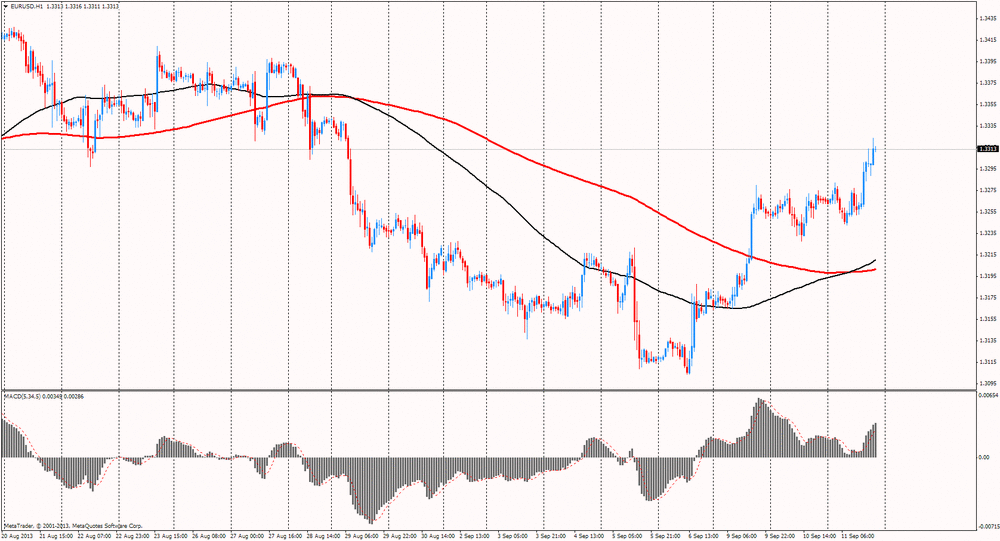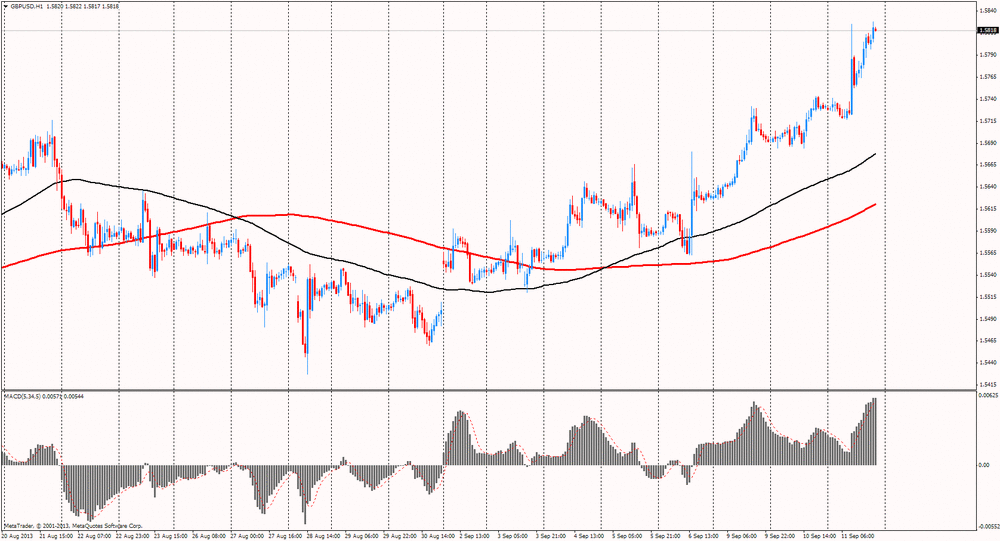- American focus : the U.S. dollar declined significantly against the euro
Market news
American focus : the U.S. dollar declined significantly against the euro
The euro rose sharply against the U.S. dollar since the deposition of the vote on approval of military intervention in Syria has reduced demand for refuge assets . It should be noted that on Monday, the first vote on military intervention in Syria , scheduled in the Senate, was unexpectedly delayed. It was assumed that it will take place later this week, but then the senators have made it clear that the vote be postponed to a later date. Earlier, President Obama liked the statement of Minister of Foreign Affairs of Russia Sergey Lavrov, who believes that all stocks of chemical weapons to Syria to pass under international control. Secretariat of the President of Russia has carefully examined the proposal on Syria and decided to postpone the war. Obama said that this could be a first step to ending the conflict .
Note that many market participants are waiting for tomorrow's speech by Federal Reserve Bank of New York William Dudley . Earlier in his speech , on July 2 , Dudley said that U.S. economic growth is likely to quicken in 2014, and to reduce the quantitative easing program may have in the fall. Recall that the meeting will take place on September 17-18 Open Market Committee Federal Reserve , where, according to the median forecast of experts , politicians will reduce the amount of monthly purchases to $ 75 billion from the current $ 85 billion
The pound rose against the dollar significantly , which in the first place was due to release better-than- expected data on British employment as well. This has given rise to expectations that the Bank of England may have to raise interest rates earlier than indicated in the long-term plan policy.
As it became known, in the UK, the number of applications for unemployment benefits fell in August, more than expected , to the lowest level since February 2009 , showed on Wednesday , official data .
According to the Office for National Statistics , the number of people claiming unemployment benefits fell by 32,600 to 1.40 million, is the lowest level since February 2009 . Economists had expected a drop to 21200 .
As a result, the unemployment rate in August fell to 4.2 percent from 4.3 percent in July . Economists had expected the rate will remain unchanged at 4.3 percent .
The unemployment rate in the three months to July was 7.7 percent, up 0.1 percentage points lower than in the period from February to April. Unemployment rates were slightly lower than expected 7.8 percent . Average wages excluding bonuses rose by 1 percent during May to July compared with the same period a year earlier. With bonuses revenues grew by 1.1 percent.

